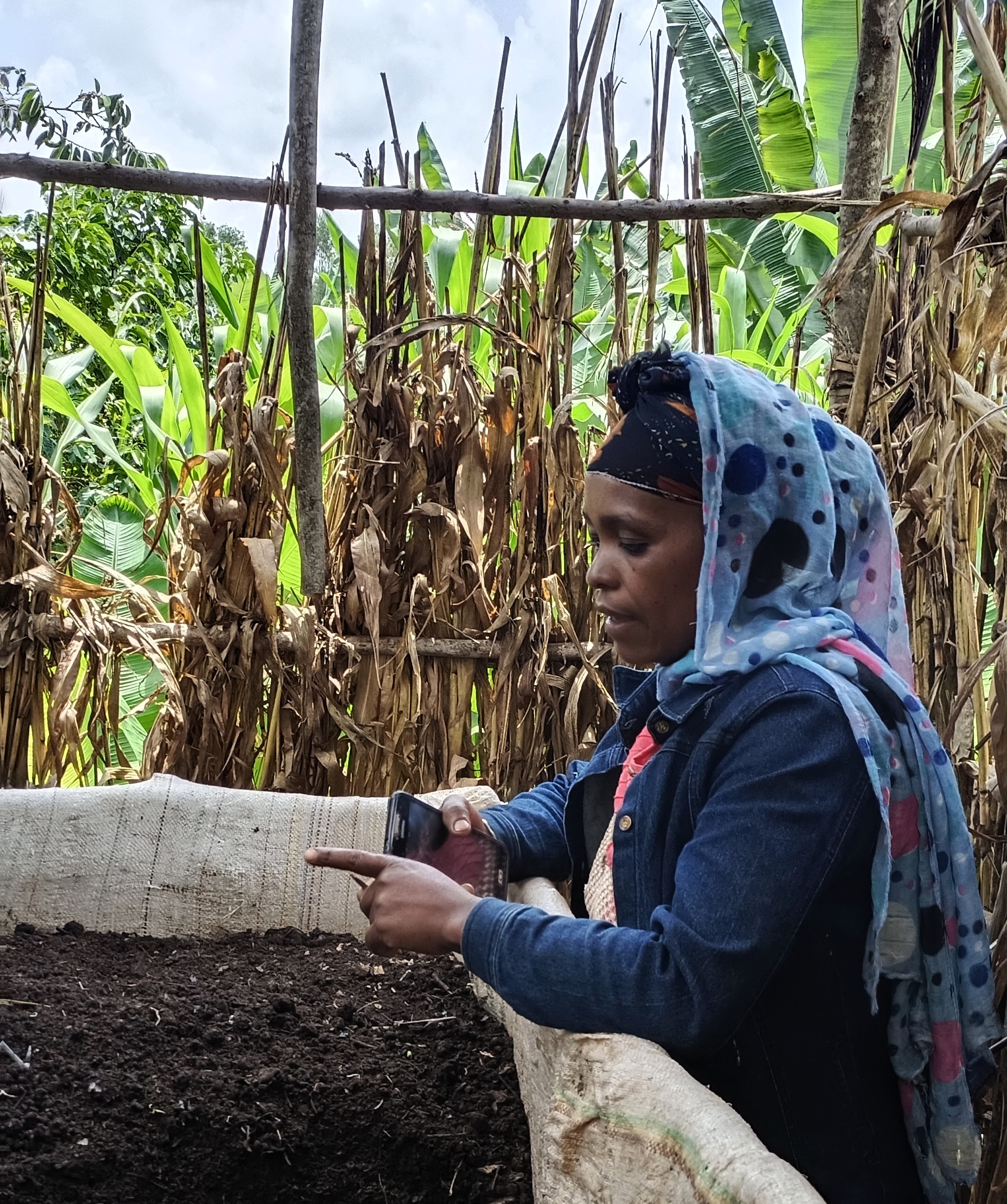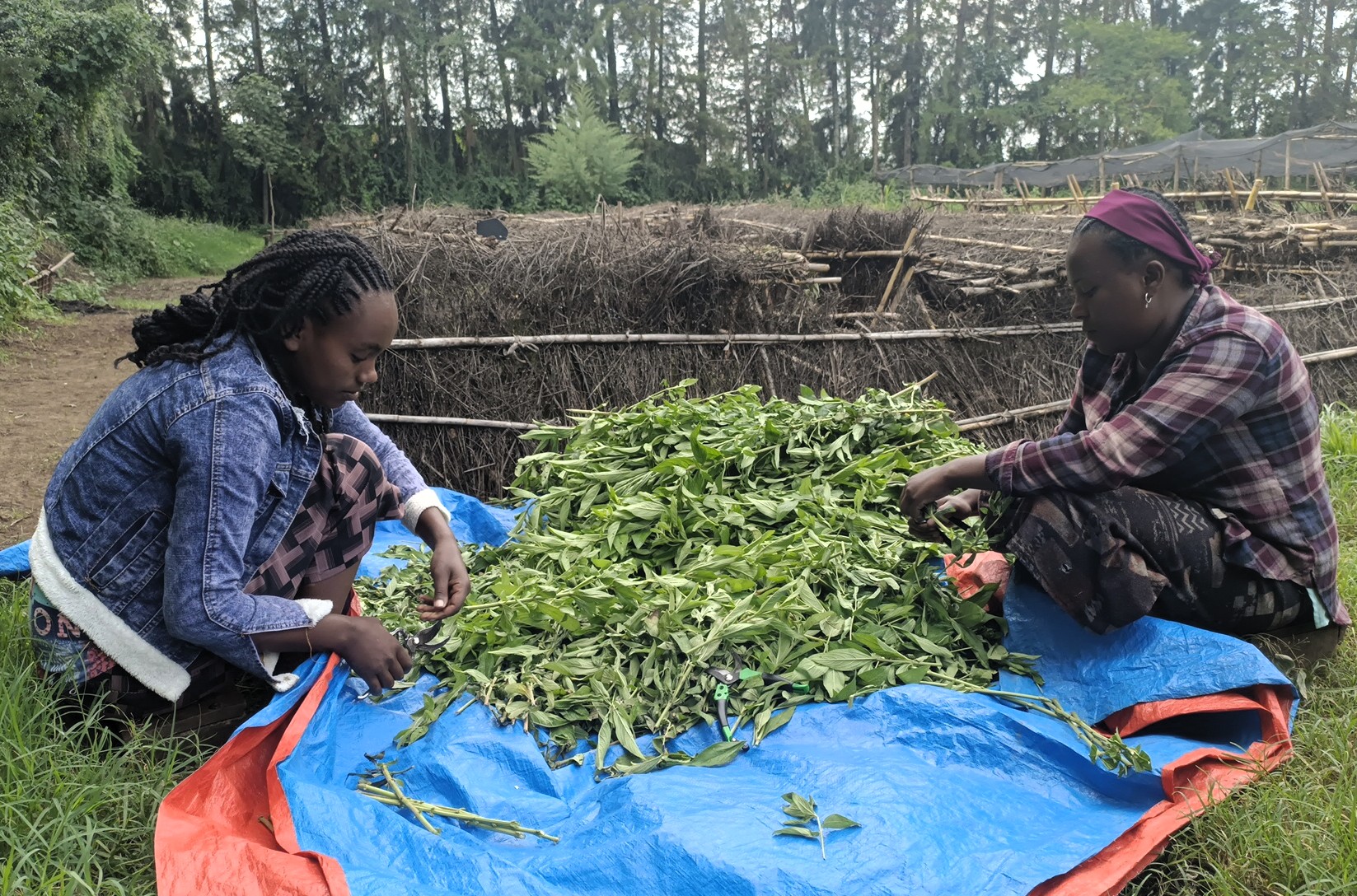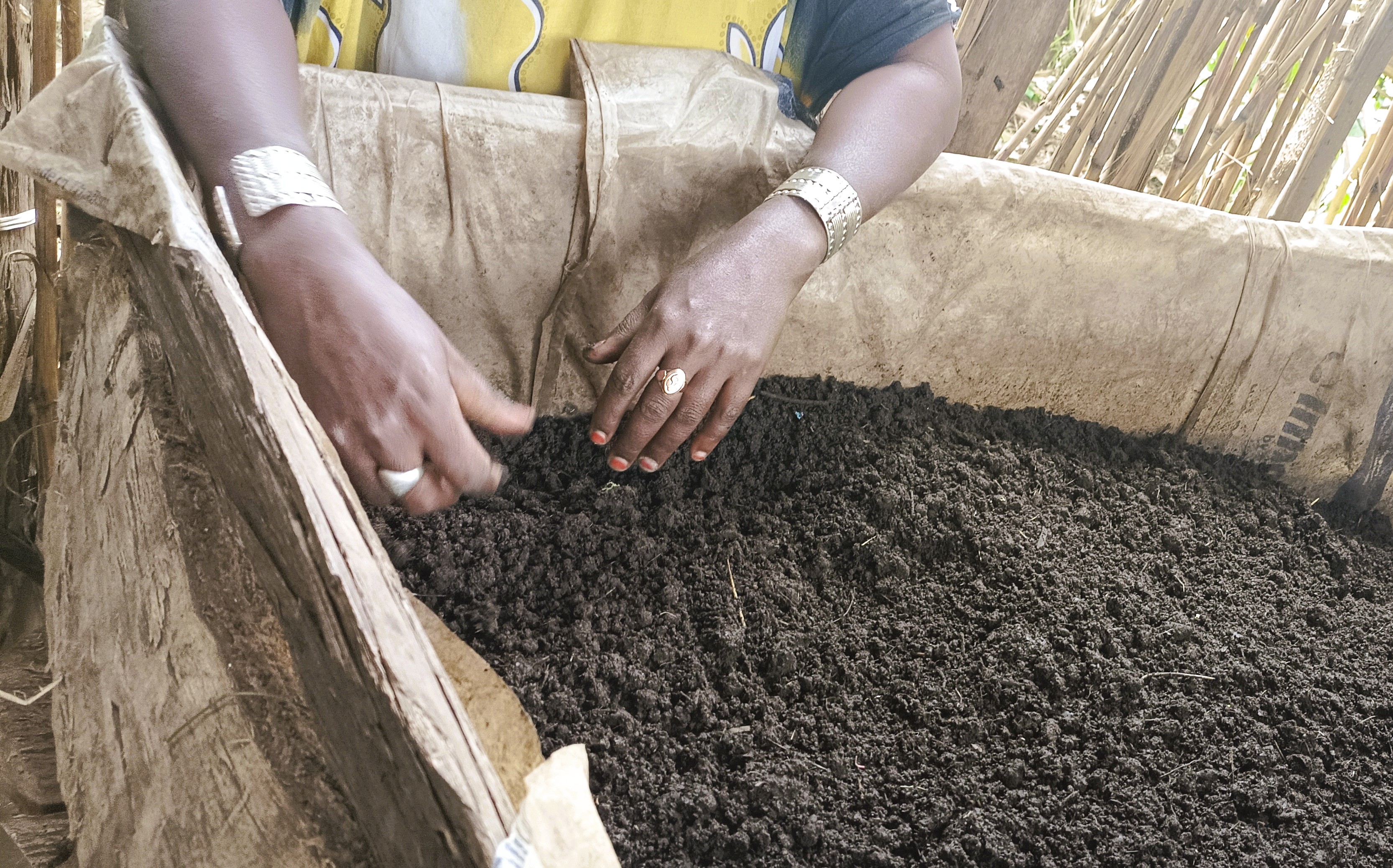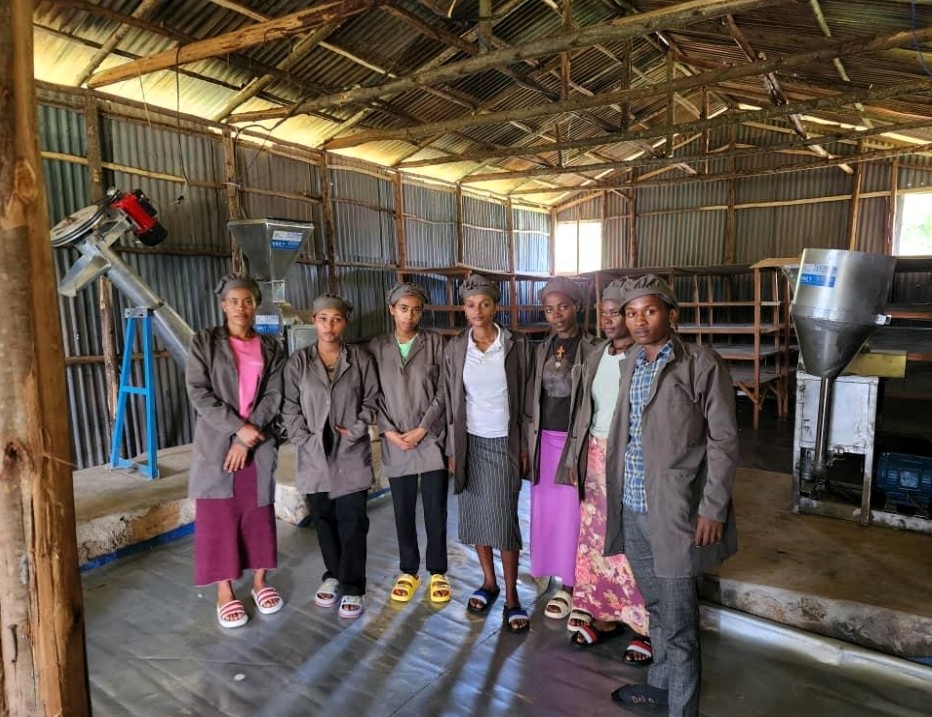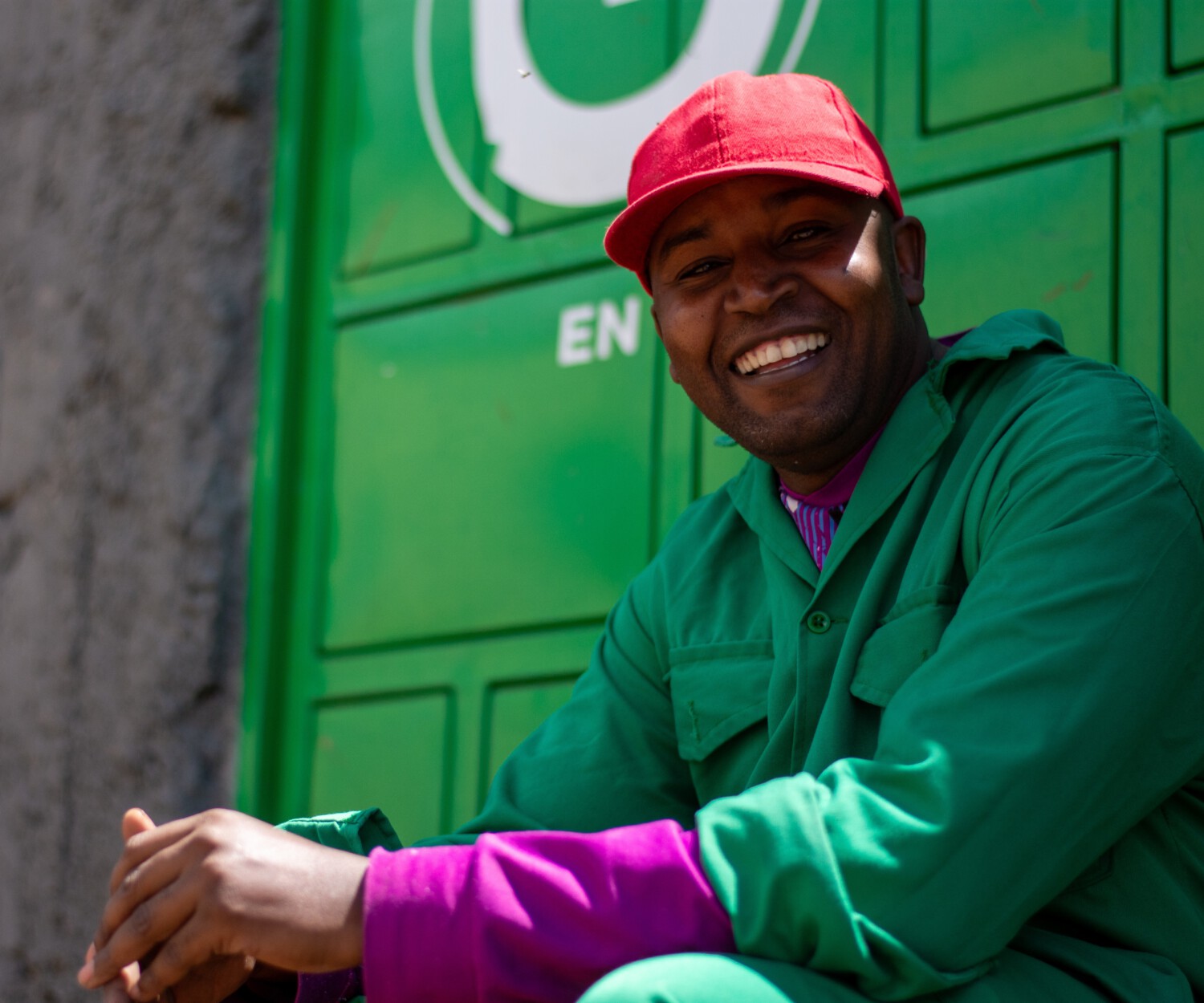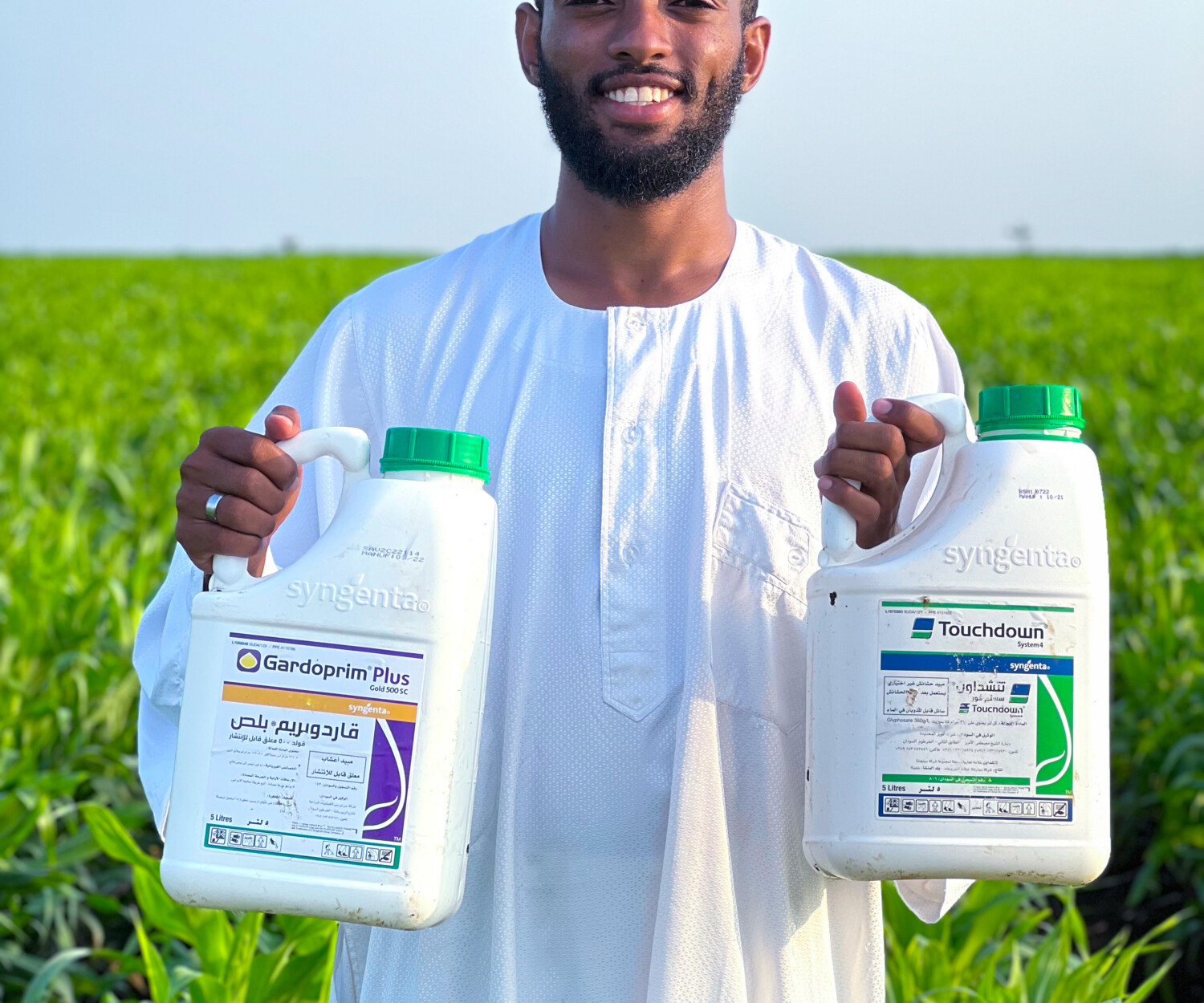From Roots to Resilience: Young Farmers Cultivating the Future of Agriculture in South-West Ethiopia
Meet Amina, Aster, Addisu, and Tagay – four young farmers from in and around Butajira, and South-West Ethiopia. United not only through their profession, but by their resilience and determination to build a brighter future in farming.
That future found fertile ground through a training programme led by Chakka Origins, a social enterprise rooted in organic agroforestry and working hand-in-hand with farming communities. With support from CFYE, the programme enables youth – especially women and marginalised farmers – with practical skills, tools, and resources. Their approach is to use sustainable agriculture as a path to income, inclusion, and environmental protection.
As the programme’s journey with CFYE nears its close, its impact lives on in the stories of these four farmers – testaments to what can happen when young people are given the tools to lead change in their communities. Through their journeys, Amina, Aster, Addisu, and Tagay embody the strength of Ethiopia’s youth – resilient, innovative, and ready to transform both land and life.
Amina Sebir – Productivity from Environmental Protection
Amina Sebir, 29, had always believed in the potential of her land – even when circumstances made it difficult to thrive. With limited education, economic inflation, and expensive chemical fertilisers, farming had become more of a struggle than a solution.
In a community where education was often reserved for boys, Amina still valued learning. When she heard about the Chakka Origins programme from local agricultural officials, she joined with hopes of gaining new skills and better market access. But what followed went far beyond that.
Through hands-on training, Amina learned to make her own vermicompost, replacing the costly chemical fertiliser with an affordable, eco-friendly alternative. She also picked up skills in herb cultivation and post-harvest handling – skills that not only increased her income but deepened her connection to the land. Through her training, Amina realised that prioritising environmental protection is not a threat to productivity but can actually improve it.
Today, both Amina and her crops are thriving. She spends most of her day working in her yard where the sight of her now green and growing crops brings her happiness. Changing fertilisers and selling produce directly from home has made Amina more financially independent. This increased income has enabled her to pay for her children’s education – something that young Amina could only dream of. Her message to other young farmers is simple: “You can protect the environment while producing your food.” Amina is a living proof that when women are empowered, entire ecosystems flourish.
Aster Kero – Rethinking Tradition, Reaping Results
Aster Kero, 26, grew up immersed in the traditions of rural agriculture. But the old ways were no longer working. Low productivity and outdated techniques left her struggling to make ends meet.
When Aster learned about Chakka Origins through her local Kebele administration, she saw a chance to do things differently. Supported by CFYE, the programme provided her with training in seedling propagation, composting, and cultivating herbs like kosseret and rosemary—plants she never imagined could be turned into profitable crops.
By rethinking old methods, Aster built a more secure livelihood, improved her family’s nutrition, and even invested in livestock. Through Chakka Origins’ community-based model, she also joined a cooperative that supported her financially and offered a space for shared learning and connection with her peers.
Today, Aster is respected and recognised in her village. She urges others to “join a cooperative for a better future.” With stability, the joy for work has returned – especially in the hours she spends working in her garden, where she feels productive and deeply connected to nature.
Addisu Mariam – Sowing Change, Inspiring Communities
For Addisu Mariam, 22, life was not always easy. Before joining Chakka Origins, he faced multiple intersecting challenges – from addiction to unemployment, and, at times, even homelessness. Life was uncertain, but Addisu held on to hope.
When the Kebele administration introduced him to the Chakka Origins training programme, Addisu knew this was his chance for something better. With determination, he learned to grow seedlings, manage a nursery, and use compost to support sustainable farming. Addisu now earns a steady income from selling banana seedlings and spices.
But the real transformation runs deeper: he overcame addiction, found love, started a family, and built his own home. He even bought livestock to further secure his family’s future. To others facing similar struggles, he offers encouragement:
“Follow my journey, break free from addiction, and take any opportunity to work and improve your life.”
Addisu’s success has made him a respected member of his community, and he finds pride and joy from being able to support his family through his work. His journey is a reminder that with the right support and dedication, it is never too late to turn once’ life around.
Tagay Wondimu – Journey of Growth and Giving Back
Tagay Wondimu, 29, had always had a passion for agriculture. But despite his hard work, farming korroerima, the Ethiopian cardamom, was not paying off. Poor harvesting and processing methods left him frustrated and discouraged.
Until one day, Tagay heard about the training and cooperative offered by Chakka Origins, a programme that aimed to blend entrepreneurship, agroforestry, and environmental care to create sustainable job opportunities for youth. He joined in hopes of improving his knowledge. But what followed, exceeded all his expectations.
With practical training, tools, and mentorship, Tagay transformed not just his korerima production, but his entire farming model. He now farms organically across multiple plots, has expanded his production into avocado and enset, started a coffee house, and added ten beehives to his farm – further diversifying his crops and income.
But Tagay did not stop there. He now employs six young farmers, has distributed thousands of seedlings, and trained dozens of local youths in spice production.
“Embrace education and cooperative efforts and start spice production early to maximise opportunities” Tagay says, praising the training and cooperative model of Chakka Origins.
Once discouraged, Tagay is now a successful farmer, mentor, entrepreneur, and a catalyst for real change in his community.
Future Harvested by Youth
As Chakka Origins prepares to close this chapter of its journey with CFYE, its impact lives on in the thriving farms and families of Ethiopia’s South-West regions. The programme has done more than create jobs – it has nurtured resilience, restored dignity, and sparked confidence in the new generation of farmers.
The seeds of change have been planted – and Ethiopia’s youth are ready for harvest.
More stories
Interested in more?
Vacancy
Consultancy – Technical Assistant Expert
 Sade Aalto-Setala
Sade Aalto-Setala
 December 3, 2025
December 3, 2025
